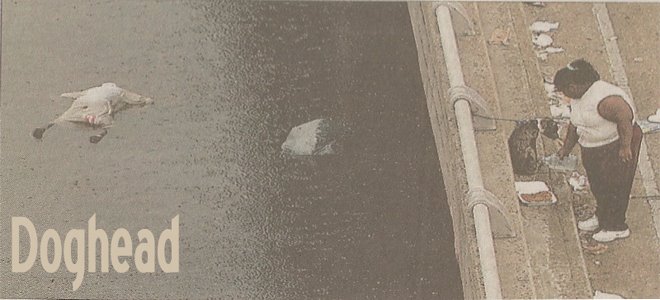
She opened her eyes and I sniggered. She didn't understand. So I told her the whole story, the whole story about the kid, at any rate, how he's fallen in love with a girl, and what her father and brother had done to him afterwards. I explained to her what I'd decided to do with Lou and her - get even, two for one. I fished in my pocket and found Lou's watch; I showed it to her, and said I was sorry not have brought her one of her sister's eyes, but that they were too messed up after the special treatment-my own invention- that I'd just finished giving her.
It was hard for me to say all that. The words didn't come easily. She was there, eyes closed, lying on the ground with her skirt turned up to her waist. I felt that thing again all down my back, and my hand closed over her throat all by itself; it came; it was so violent that I let go of her and almost stood up straight. Her face was already blue, but she didn't budge. She'd let herself be strangled without lifting a finger. She must've still been breathing. I took Lou's revolver and shot her twice in the neck...
What may at first seem like a cheap exploitation/pulp fiction was in fact so much more. The book's protagonist was mixed race, and in the story seduces and murders two young white girls as revenge for the lynching of his little brother. Again, a story that has doubtless been touched on many times in the past. Only this book was first published in 1946. 7 years before Invisible Man, 14 before To Kill A Mockingbird. To modern sensibilities, the book is little more than shock value, an amoral revenge novel that is more distasteful than poignant. But to think that the words of 'Black American author' Vernon Sullivan were readily available on paperback shelves while segregation remained ever present in American towns is truly amazing.
Vernon Sullivan appears in italics because the author was in fact Boris Vian, a prolific author, jazz musician, playwrite and celebrity. J'irai Cracher sur vos Tombes was in fact a literary hoax, albeit a very well intentioned one. Vian was a strong and vocal critic of racism in all aspects of his life. After being asked to translate an American thriller into French, Vian went one better and wrote his own:
And So was born Vernon Sullivan, a young black American to racially and sexually daring to be published in the US. In ten days, Vian cracked out a brutal novella... it was published as a novel by Vernon Sullivan, translated by Boris Vian. (from Strange Attractor Vol. 2)
After a young woman was murdered, with a copy of J'irai Cracher... left beside her body, moves were made to ban the book, and Vian was later placed on trial for pornography, where he was fined and put in prison, a conviction later overturned. Such proceedings did no trouble for the book's publicity however, which was eventually translated into English and sold by the bucketload. The book was eventually adapted into film, although Vian was not quite happy with it. He died a few minutes into the first screening of the film, aged 39. Biographers are in disagreement as to what insults he hurled at the screen.
My copy of J'irai Cracher... is from the 1960's. I'm not sure when the book was last printed, but it's a bugger to get hold of. My copy, which cost 95c at the time, set me back about $60. I've read it three times through, you can manage it in an hour or so, easy. It's pretty difficult to get through at times, both because of the 'edgy' prose, but also some of the more disturbing scenes, which even to a modern reader such as myself are a bit difficult to get through. In spite of these scenes of horror and gratuity, there are some almost 'tender' moments within the mind of the protagonist, who reminds himself why he does the things he does. Just to think that in the 1940's there was a black protagonist capable of committing graphic acts of revenge against white people is really quite remarkable.
I put her brasserie and panties back on her, I dried her thighs on a corner of the bed sheet. Finally I got her into the transparent negligee. She offered no resistance; she was soft and warm in my arms.
"Beddy-bye, little sister," I told her. "I'm clearing out tomorrow morning. Try to be down for breakfast - I want to see you."
Then I pushed her out and shut the door. One thing was certain - I had those two girls exactly where I wanted them. I felt all light and joyful inside, probably because I could sense the kid smiling up at me from under his six feet of earth, so I stuck out my hand to him. It's a pretty great thing, to be able to reach out like that and make contact with your brother.

